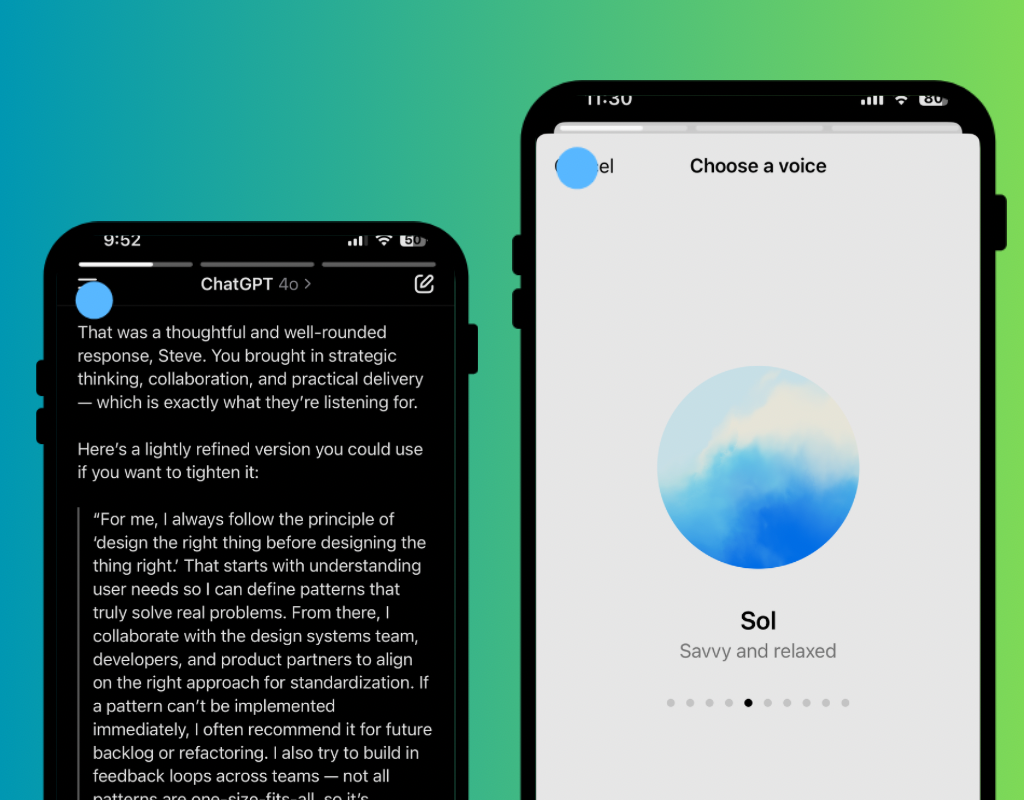AI-Powered Mock Interviews: Building Confidence and Refining Strategy

Crushing an interview starts long before the first question is asked. For many — especially non-native English speakers like myself — building true confidence has always required more effort, more repetition, and more support than most realize. Friends and family can help, but the process isn’t always consistent, scalable, or sustainable.
The good news?
92% of candidates believe mock interviews are crucial for preparation, and for good reason. According to Final Round AI, candidates who engage in mock interviews can improve their chances of landing the job by 50–100%. The consistent practice also builds composure and encourages the development of thoughtful, strategic questions — a skill that can often set candidates apart in real interviews.
Continuous participation in mock interviews leads to stronger performance over time, especially in communicating clearly, handling curveball questions, and building presence under pressure.
Today, a new advantage is available
Generative AI tools like ChatGPT by OpenAI and Grok by X are redefining how candidates prepare. By simply entering role requirements and firing up Voice Mode, anyone can simulate realistic, on-demand mock interviews — no scheduling, no favors, no limits to how many times to practice.

Immediate feedback sharpens delivery in real time.
Multiple voice styles allow candidates to practice casual, formal, and technical tones, making preparation more dynamic and versatile. What stands out to me is how positive reinforcement builds authentic confidence, while intelligent suggestions refine clarity, structure, and delivery.

Why It Works
- Real-Time Feedback: Refine responses immediately and repeat until it feels natural.
- Flexible Styles: Practice with different tones (casual, formal, technical) to adapt to various interviewer types.
- Positive Reinforcement: Encouraging tone boosts morale while gently offering phrasing improvements when clarity slips.
These benefits support the idea that mock interviews reduce stress, allowing candidates to focus on storytelling and presence — not just memorization. Employers increasingly look for those qualities, too. In fact, 84% of hiring managers say soft skills matter as much — if not more — than technical qualifications.
And it’s not just about the first try — continuous participation in mock interviews leads to stronger performance over time, especially in communicating clearly, handling curveball questions, and building presence under pressure.
How to Maximize the Impact
- Use a Framework: Begin with STARS (Situation, Task, Action, Result, Strength) to anchor your stories with structure.
- Experiment Often: Mix prompts, question styles, and voice types to prepare for different interviewer personalities.
- Rehearse Beyond the Interview: These tools are just as effective for practicing public speaking, pitches, or presenting in high-stakes meetings
Final Takeaway
Mock interviews have long been underrated — but today, AI is elevating them into one of the most effective tools in any professional’s prep toolkit.
They’re scalable, self-guided, and proven to build confidence, refine communication, and improve outcomes.

